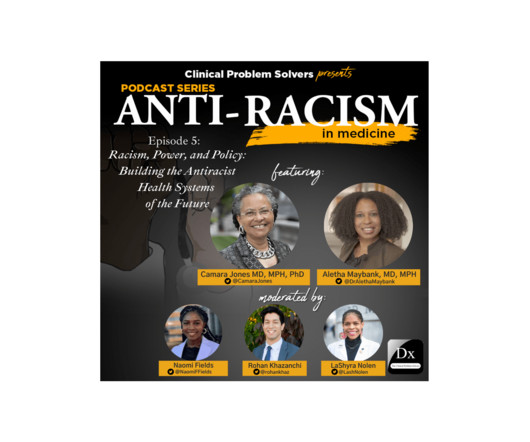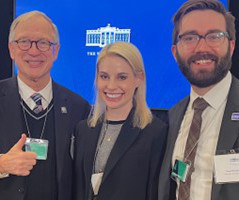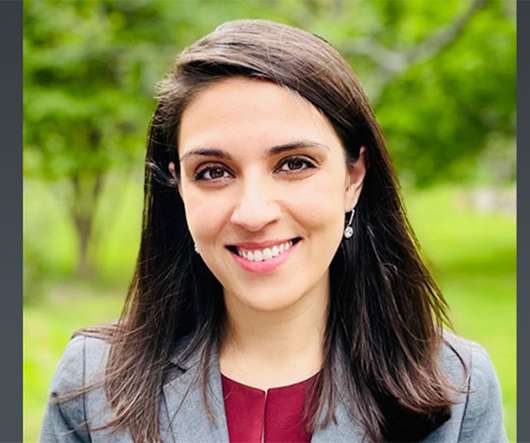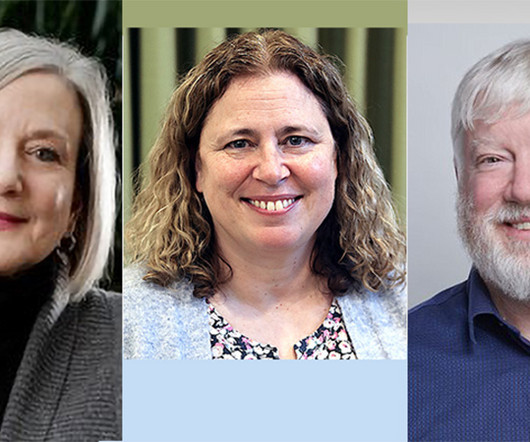Episode 155: Antiracism in Medicine Series – Episode 5 – Racism, Power, and Policy: Building the Antiracist Health Systems of the Future
The Clinical Problem Solvers
JANUARY 18, 2021
Understand that collective action and a focus on community, rather than individualism, are most effective in combating racism and achieving health equity. One of the biggest barriers to health equity is the narrow focus on the individual and a failure to see health as a widespread community issue. 2009 Jun;101(6):501-12.
















Let's personalize your content